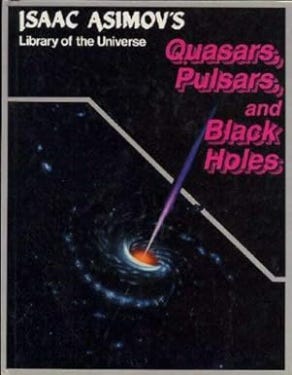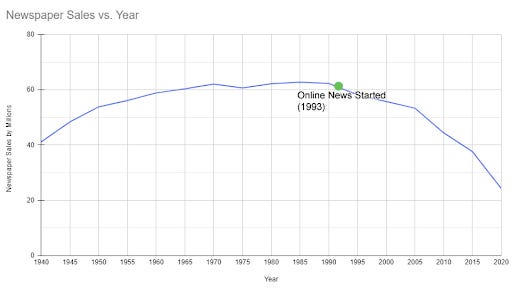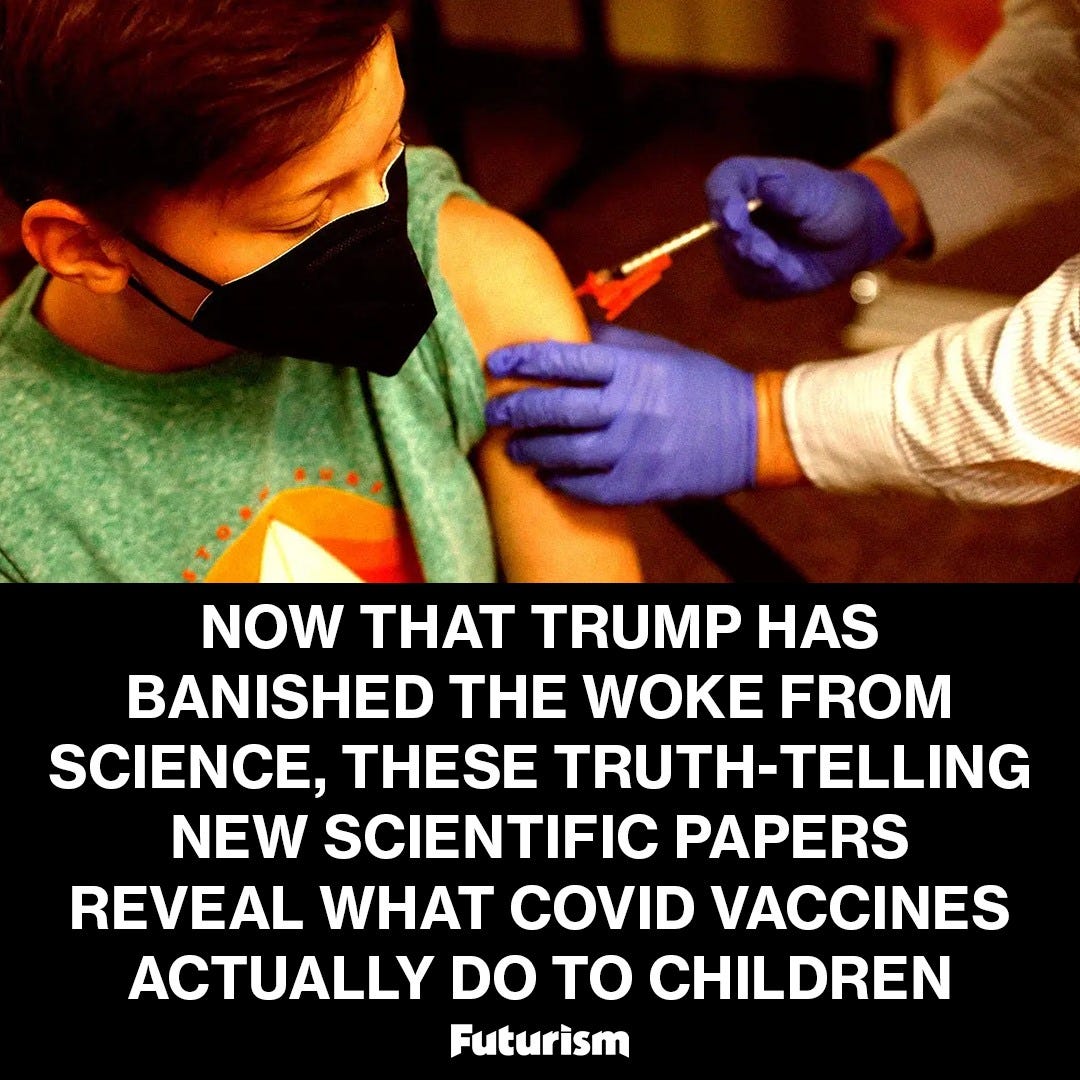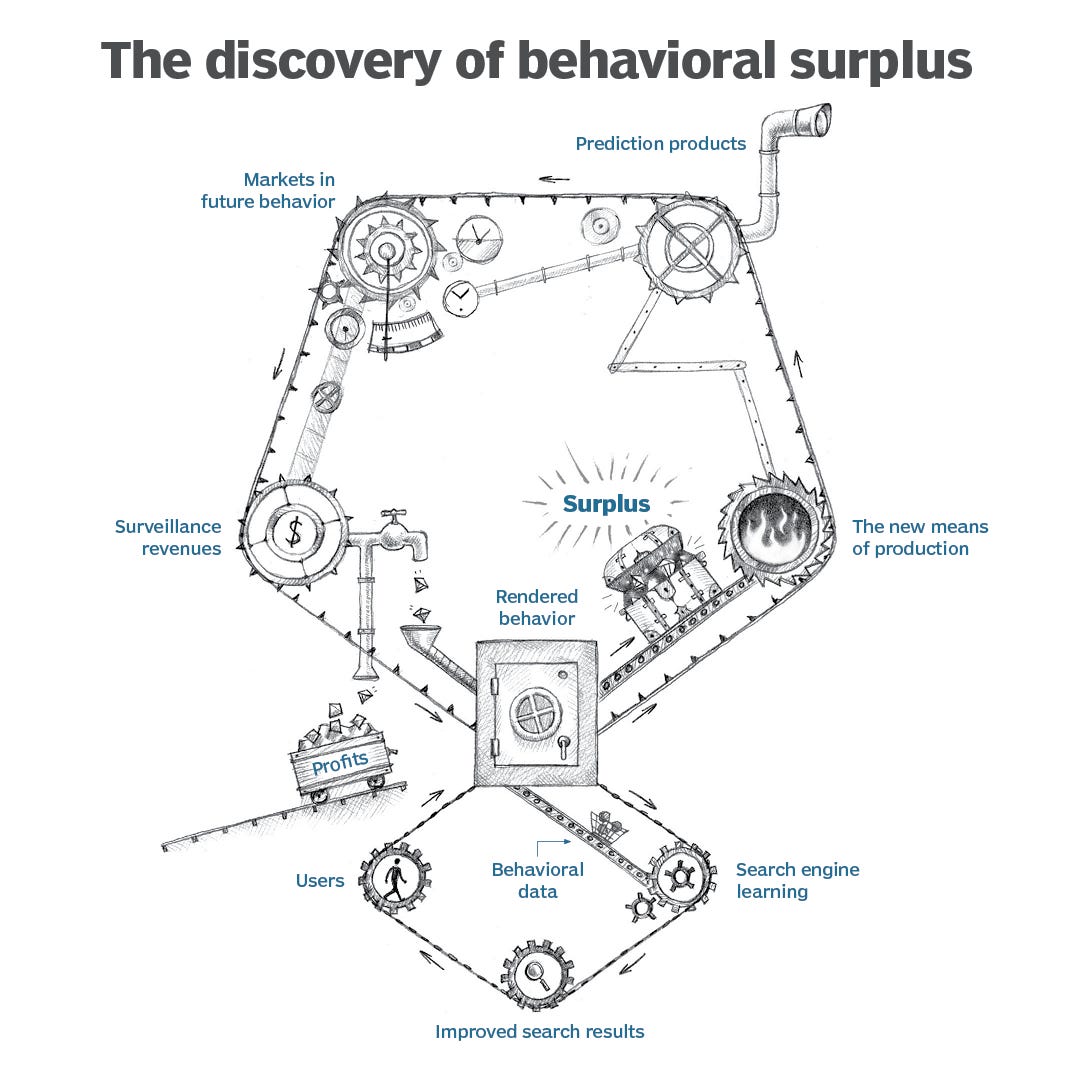I Fucking Love Science[TE]
Welcome back to the Trenchant Edges.
Trenchant as in sharp and Edges as in boundaries.
It’s about cutting through and around different ideas to show things from a different perspective.
For the last couple years I’ve been thinking a lot about science communication. How information makes it out of specialist fields into the public awareness and how the public reflects on that knowledge.
Like a lot of people, my introduction to such things came from guys like Carl Sagan and Issac Asimov. I picked up on the New Atheist wave in the 00s until a brief email exchange with Richard Dawkins that proved to me he was a clueless fool who didn’t care if what he said was true, and later Neil DeGrasse Tyson.

The Dawkins thing was really handy because it got me the fuck away from New Atheism before that scene curdled. Basically, I read the God Delusion and noticed that when he said religion he meant Christianity. I’d been learning about Hinduism and Buddhism at the time so I asked if he thought it was a problem for his ideas if there were religions other than Christianity and he told me he didn’t care.
So Dawkins being a piece of shit never really came as a surprise.
There’s a thing I noticed with most of these guys that bugged me. I’d hoped Tyson would avoid it when I first noticed him getting popular after Plutogate.
Basically: once the media thinks of you as The Science Guy they ask you lots of questions you’re expected to have authoritative knowledge of where you know fuckall.
And if you like being Mr Science, you need to give an answer other than, “I don’t know.”
So there’s a string of incidents of these guys saying stupid shit that would fail you in a 101 level class on the subject because they can’t be experts in all fields.
We should probably also mention that Asimov and Tyson have both been accused of being at least sex pests and worse in Tyson’s case. And a TON of big name scientists like Lawrence Krauss were good friends with blog favorite, Jeffery Epstein.
There’s definitely a creep problem.
Ironically enough, it was another Epstein associate who more or less invented the for profit scientific publishing that represents one of the most malicious aspects of modern academia.
That’s how the father of Epstein’s girlfriend and pimp Ghislaine Maxwell, Robert Maxwell made his first fortune after WW2. It’s a crazy story. Look it up.
But that’s less our concern here than the interface between the public and academia: Journalism.
The Failure Of Journalism And Rise of Social Media Algorithms
We must start with the fact that journalism generally does a bad job of covering science. I don’t think it’s really journalists fault though.
Here’s why:
Since the 90s, economic and political forces have encouraged consolidation of media ownership and the utter ruin of traditional financial streams that kept journalists funded.
This has been apocalyptic to local journalism. There used to be a network of local papers, many of them coming out daily, able to have full time journalists on the payroll because income from advertising and the classified section supplemented sales and subscriptions as a viable business model.
The Internet hit all this like a bomb.
First, free news undermined even the premise of having to pay for writers, editors, and printers to collect, produce, and distribute news.
Worse, online marketplaces like ebay offered an audience and selection that dwarfed the classifieds of any newspaper. Sites like craigslist did the same with some local targeting.
This all created a disastrous feedback loop: Fewer readers meant you can’t charge as much for advertising, which meant less money coming in which meant you needed to cut staff which means there’s less reason to read because the quality decreased which lowered readership.

Which brings us to media consolidation. Fewer owners who own more media outlets.
Which itself brings us to the real villains here: Social media algorithms and the evil ass companies who profit off them.
Companies like Facebook and Google make money by selling advertising on prediction markets. This requires ever more surveillance of users and non-users to produce more valuable predictions.
Everything a website can capture about your behavior is shoveled into sophisticated machine learning systems to try and predict what motivates you to click on an advertisement.
These models are far from perfect, but they’re very good in aggregate. And that’s the problem.
Because those same models, or more likely their cousins, are used to serve the content that will make you engage the most with the website to maximize the number of ads you can be shown because more ad placement makes their platforms more money.
In order to get the most attention from these platforms, you need to post things that get the maximum amount of attention from users. On Facebook it’s all about reactions, comments, and shares. Other platforms use different metric. Youtube rewards long watches last I checked.
This pushes creators to create the most emotionally compelling content targeted at the most people.
Starting to get where the problem comes in?
Social media, as was famously noted, democratizes access to mass audiences sort of. The reality is a bit more complex because there are a ton of factors that determine access to mass-scale audiences. Size of the source, the specific platform’s algorithm, how optimized the content is, what it’s competing with, the reactions of the early audience, if it gets shared to someone with a large enough platform to matter, etc.
All this comes to clickbait. Where people twist their headlines to be more optimized with the algorithm. Which usually means exaggerating and often means outright lying.
So I hopped over to my favorite clickbait farm, Futurism.com and found a gem:

This headline isn’t explicitly misleading, but is written to play into the biases of anti-vaxxers and the comments are full of people reacting to those assumptions instead of the content of the piece.
Successful bait.
And that’s what most posts need to do in order to make an impact when competing with literally everything else being posted.
Now, your job as an editor at a publication depends on being able to bring in enough audiences that you can fund having a publication. And platforms like Facebook fucking *hate* offsite links. Twitter got real hostile to them once Elon took over too. Youtube doesn’t even have native hyperlink support in most places. It’s nuts anyone puts up with this crap.
Now, all of this is bad.
And it isn’t anything new: Yellow Journalism is over 100 years old. As the old saying goes, if it bleeds it leads. Same shit, new context that makes it worse. And we haven’t even mentioned the way AI makes all this much worse!
But now let’s take a moment and think about the other side of our equation here.
The Production of Knowledge
Academic knowledge is produced slowly, increasingly by large teams each working on a small fraction of the whole, to account for all parts of a research question.
The edges of many fields simply aren’t accessible for single scholars with a breakthrough innovation.
This obviously varies wildly, but it needs said.
This is a big improvement over earlier eras in most ways because academic discipline barriers prevented many fields from cross pollenating ideas and learning each other’s techniques.
But the implications of huge cross-disciplinary teams also has complications. Most notably, the amount of knowledge one needs to evaluate a claim or even whole paper. But it also means to collaborate you need to break things down into smaller chunks that can be passed around and that can be misleading.
Which brings us to what gets headlines: Provocative ideas. Drama. Big personalities.
Again: If it bleeds, it leads.
Now mix that with a media environment where doing journalism is barely a viable career unless you’re an influencer and you get sloppy work by people who don’t fully understand what they’re talking about then getting edited by someone without any exposure to the subject at all and then writing a headline they think will bring it the most attention.
Now imagine most of your audience doesn’t really know much about how the sausage is made in either of these fields. Because they don’t because most people aren’t scientists or journalists.
A few years ago I watched a video titled, “String Theory Lied, and now Science Communication is Hard.” by a Ph.D. physicist Angela Collier and she makes a point that should be familiar to us now: Science used to say one thing, but now says another thing and doesn’t always make a point of clarifying why.
This leaves people with low or moderate interest in the subject nor really sure what happened which usually isn’t important until someone shows up to accuse scientists of being liars at which point all these open loops become evidence!
Which brings us back home to various alt-theories on reality and their utility in radicalization pipelines.
And that’s ultimately what all this nonsense is about.
Gaze Into The Abyss With Me
A pet theory I’ve had for a while is that the corporate person is the true Nietzschean Ubermensch: the replacement for god whose mere existence destroys those of us who remain all too human. Freddy, for his faults, was correct that we were and are in a revaluation of all values after the end of Christianity. From the current moment it looks like the expansion of capital itself has won out even over profit.
Chalk one up for Marx.
Incidentially, this is why I’m not particularly worried about AI destroying the world: Capitalism is already generating a kind of consciousness that’s already well on its way to destroying the biosphere than any hypothetically superintelligence.
What I’m hoping this means is that as the collapse of Neoliberalism with the American empire it held up is a stage in a process that leaves us better able to deal with the ways the institutions it built lie and sought control over our lives.
And that includes academia, descended from earlier church/guild forms as it is.
Maybe that’s too optimistic and we’re just collapsing into chaos.
I don’t know.
My instinct with rubble is to look at what else you can build with it.
I don’t know what can be built here.
But I see things falling apart and I see the signs of doom everywhere. My intellect says things are maximally fucked or heading there unimpeded.
A mote of awareness, infinitely small and harder than diamond tells me that my intellect doesn’t know what the fuck is going on and the only way out is through.
So, uh, what does this have to do with science communication?
Well, it’s fucked isn’t it?
It’s interwoven into the same big death machine as everything else. We didn’t even mention how much of modern academia is just there to build bigger weapons for our beloved friends at the military industrial complex.
The MAGA age is the empire scrambling to reassert itself into something that can endure once the final benefits of winning WW2 fade. And so much of what we think about science comes from the truths and lies we told during the atomic age.
They don’t call it the imperial boomerang for nothing!
We can find analogous processes happening in almost any facet of society.
Where does that leave us? Help as many people survive this fascist bullshit as possible and figure out how we got here and what needs done to avoid this in the future.
Then share that knowledge widely.
Wrapping Up
Well, that was cheery. Sorry, I tried to stay focused but it was difficult to ignore the big picture on this one.
Many of the problems in the world are interlinked.
One part of the legacy of colonialization is accepting brutal violence as normal and good.
In the mean time I’m going to be digging back into our investigations of the Dawn of Everything and Columbus.
See you on the other side,
-SF



Thanks for this. We know the right has no regard for science but also I think there are a lot of kneejerk liberal “believe science!” drones out there, which makes it hard to look at any scientific question clearly. It makes me feel so validated to see that I’m not the only one to notice N deG T says baloney on subjects outside of his expertise.